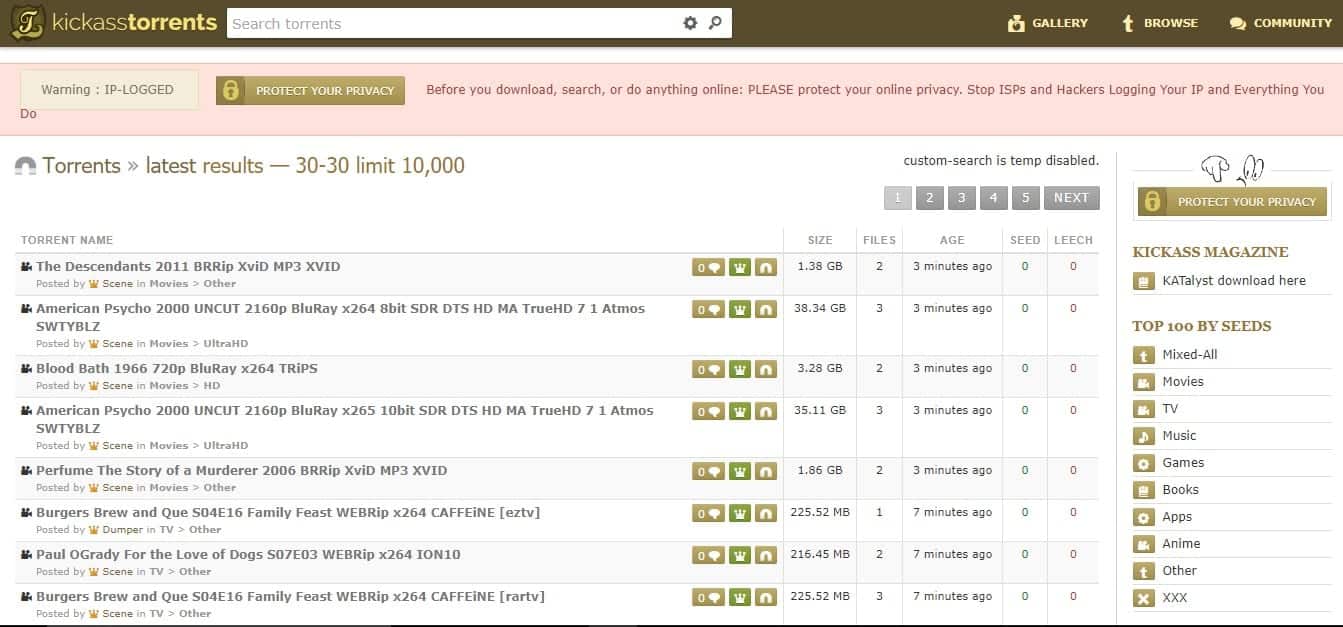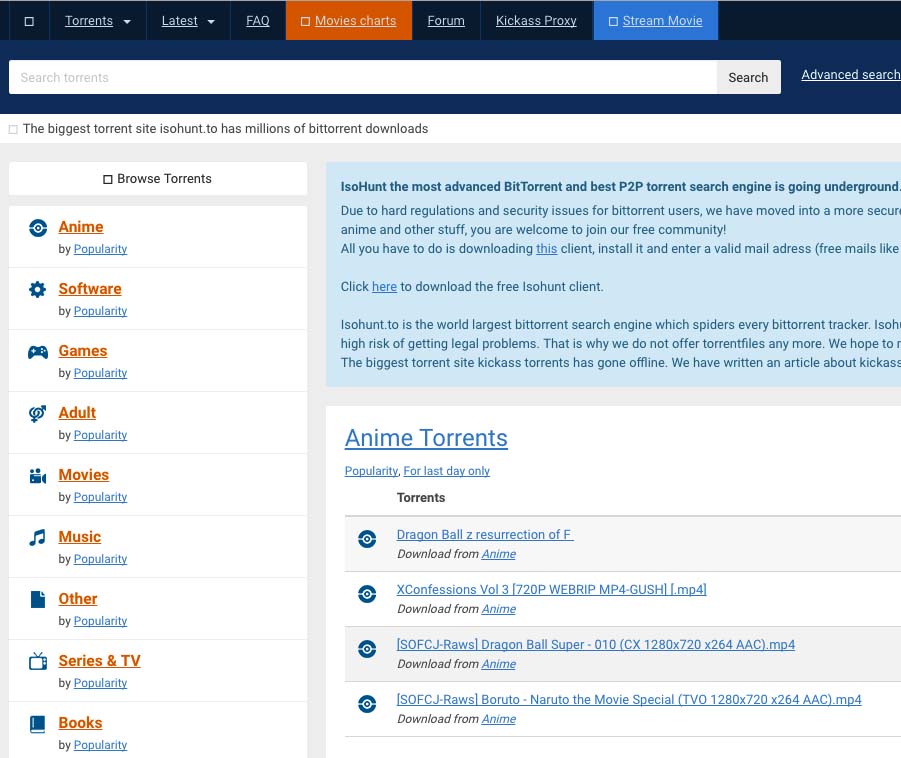

But these efforts failed, in part because “breaking big files into smaller, more distributed pieces and tracking their assembly” is not itself illegal, and BitTorrent Inc. In 2012, industry lobbyists even pushed for a bill called the Stop Online Piracy Act, which would have let the government essentially shut down any website hosting pirated content. The execs sicced their lawyers on BitTorrent users, hoping to sue the pirates into oblivion. Hollywood executives, who had been spared the existential threat of Napster only because video files are much bigger and more annoying to transmit than music files, saw their own bogeyman approaching.

Missed last week’s episode? It’s already up on KickassTorrents.

Didn’t want to pay for a new movie? Torrent it. But shaky, low-res versions of summer blockbusters and Must See TV soon started flying around the web, and Cohen’s tech became synonymous with the illegal-download industry. Many early BitTorrent users had perfectly legit and legal goals, like the Phishheads and Deadheads who grabbed entire concerts with the bands’ blessings. Suddenly files moved faster, and uploaders could share files without killing their bandwidth or raising eyebrows at Comcast. “I figured out how to make it happen.” Unlike other peer-to-peer platforms, where downloaders had to rely on one person’s computer and their sharing largesse to access a file- remember Napster?-BitTorrent divided the uploading work among the masses, with each “seed” computer providing only a small part of the total file. While Netflix was still stuck in the mail-order business, BitTorrent was changing how and why we watch things online.Īt first, Cohen was simply solving a puzzle: There was this logistical problem of how to move large files around, he says. But within a year of starting the company, files shared on BitTorrent made up more than a third of all traffic on the internet. All he wanted to do was make it easier to move big stuff around the web-videogame updates, maybe, or the Linux distros that developers liked to swap. Bram Cohen, the mastermind behind BitTorrent, claims he didn’t set out to build a pirate ship when he launched the file-sharing product in 2003.


 0 kommentar(er)
0 kommentar(er)
